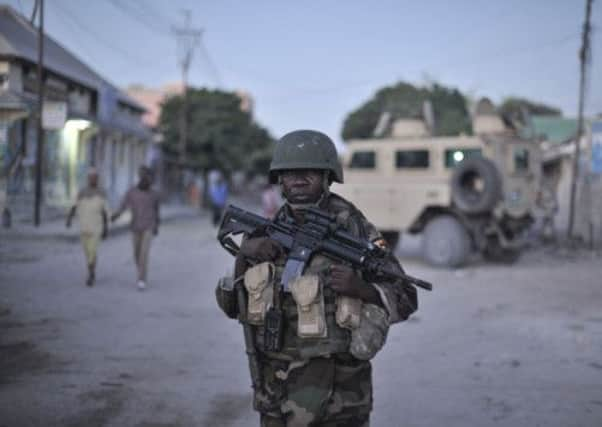Regional African force created to tackle coups, wars


African Union (AU) chairman and Ethiopian prime minister Hailemariam Desalegn announced the creation of the so-called African Capacity for Immediate Response to Crises, which he said had been proposed by South African president Jacob Zuma.
Besides South Africa, which in March had more than a dozen soldiers killed in Central African Republic by coup rebels, Uganda and Ethiopia have also pledged to contribute to the new contingent, officials said at an AU summit in Addis Ababa yesterday.
Advertisement
Hide AdAdvertisement
Hide Ad“Many countries have volunteered to contribute so that anything that happens in Africa, including an unconstitutional change of government, should be averted. This will be taken very seriously,” Mr Hailemariam said.
Security challenges faced by the AU over the past two years have included coups in Guinea-Bissau and Mali, offensives by Islamist militant groups in Mali and Nigeria, and conflict involving rebels in eastern Congo and Central African Republic.
In Mali, former colonial power France rushed in troops and planes this year to block an advance by Islamist jihadists, an intervention that embarrassed the AU by showing up the continent’s lack of defensive capability.
The AU is celebrating 50 years since the creation of its precursor, the Organisation of African Unity, a largely toothless regional body that was often criticised for failing to act against genocides, coups and civil wars.
The decade-old AU has a more active policy and had drawn up plans for an African standby force. But delays in its creation led to criticism it was slow to do its own peacekeeping, relying instead on the United Nations and western donors.
The text of the AU Assembly decision said the new rapid response force would be formed from voluntary contributions of troops, funds and equipment by member states in a position to do so. It would be a stop-gap measure pending the formation of the fully-fledged standby force, a planned 5,000-strong AU contingent due to be operational by 2015, although officials have admitted this target is not likely to be achieved.
The interim unit will be a “flexible and robust force … to be deployed very rapidly to effectively respond to emergency situations”, the text said.
It is not clear how big the force will be, as that will depend on what voluntary contributions are made.
Advertisement
Hide AdAdvertisement
Hide AdThe decision was “aimed at helping in bringing about African solutions to Africa’s problems”, the text said.
AU peace and security commissioner Ramtane Lamamra said “constitutional crises” – the diplomatic term for coups – and “massive violations of human rights” were the kind of emergencies the new force would be expected to tackle.
Some experts questioned how quickly the new force could be operational, given the years of delays that have dogged the larger standby force. “On the surface, it sounds nice, but I think it raises more questions than answers,” Emmanuel Kwesi Aning, head of research at the Kofi Annan International Peacekeeping Training Centre in Accra, Ghana, said. “The bottom line is: where is the money going to come from?”
UN peacekeeping missions in Congo and in Sudan’s Darfur, which already involve African troops, each cost global taxpayers over $1 billion (£660m) a year.
More than 90 per cent of the AU’s peace and security efforts, including its successful mission in Somalia, are funded by external actors such as the European Union and United States.
Mr Aning questioned how many African countries apart from continental powers South Africa and Nigeria – the latter already fighting a major insurgency by violent Islamist sect Boko Haram – would be able to make significant contributions to the new force.